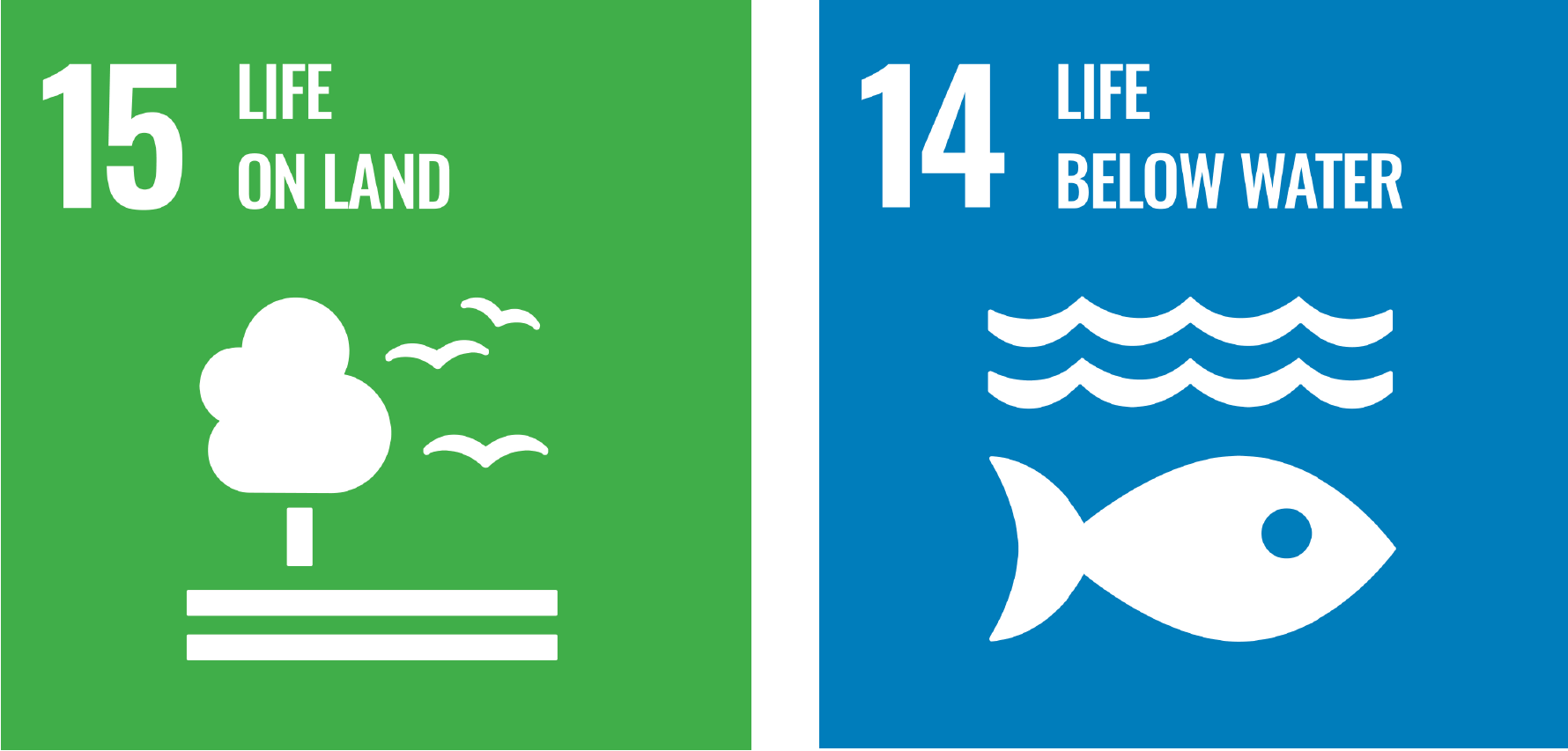Conservation
Travel Guide
What is conservation travel?
Table of Contents
- 1 Conservation Travel Guide
- 1.1 What is conservation travel?
- 1.2 Types of conservation travel
- 1.3 Why is conservation travel important?
- 1.4 What does conservation travel entail?
- 1.5 What are some examples of conservation travel experiences?
- 1.6 Important points to consider when engaging in conservation travel
- 1.7 5 amazing organisations for the conservationist in you
We’ve put together this conservation travel guide to help you understand what conservation travel is and how to choose the right experiences. First, let’s define what conservation is.
Conservation refers to any activity whose main goals include protecting species from extinction, maintaining and restoring habitats, enhancing ecosystem services and protecting biological diversity. Based on this definition, conservation travel refers to any travel whose main purpose aligns with the same goals as conservation.
Further, we also link conservation travel with SDG 14 and SDG 15 because they relate to the protection, restoration, promotion and sustainable use of marine resources and terrestrial ecosystems.

Finally, although there is some debate about what conservation is and isn’t, at Intego Travel we believe nature has intrinsic value. This is our basic reason for doing and promoting conservation.
We support any action that helps conserve our beautiful planet’s wildlife and their natural habitats.
We also recognise that conservation issues are not only an ecological problem but also a social once. So, we celebrate initiatives that benefit people as a result of conservation actions, in particular, when they empower communities to lead their own conservation actions.
In the last section of our conservation travel guide, you will learn about some wonderful organisations helping progress conservation on the ground. But first, let’s dive into the different types of conservation travel.
Types of conservation travel
For the purpose of this conservation travel guide, we have summarised conservation travel into three main areas, shown below. Although these areas overlap, we wanted to offer an easier way of grouping the different activities you might engage with while doing conservation travel.
Biodiversity
Conservation
The practice of protecting life on Earth in all its forms and ensuring ecosystems remain healthy and functioning. We view biodiversity conservation as a way of ensuring natural landscapes and their different ecosystems are maintained in their natural state and with their own complex interactions.
Wildlife
Conservation
The practice of preserving and protecting wildlife and their habitats with the aim of preventing their extinction. We consider wildlife conservation as something that happens with specific species. For example, rhino and elephant conservation in Africa.
Marine
Conservation
The practice of protecting and preserving marine ecosystems, resources and the unique wildlife of our seas and oceans. It includes strategies to minimise human activities. For example, overfishing, pollution, habitat loss, etc.
Why is conservation travel important?
Engaging in conservation travel is a rewarding experience that helps you give back to our planet.
Our conservation travel guide lists 8 reasons why we consider conservation travel to be important. We urge you to consider engaging in this type of travel!
✦ The meaningful moments you experience while doing conservation travel will change your perspective on the natural world and motivate you to contribute to its protection. Working with biodiversity, wildlife or marine conservation will influence your personal values. This inspiration will most likely drive you to help protect our planet and its beautiful natural environment.
✦ Conservation travel also contributes to biodiversity conservation. In turn, biodiversity conservation helps increase the resilience of ecosystems and maintain their functioning.
✦ When you engage in conservation travel, you come home inspired by the experiences you enjoyed on your trip. You may even decide to take small but meaningful habits in your day-to-day that help create a more sustainable future.
✦ Conservation travel also helps promote knowledge and education about environmental issues and the role conservation plays in addressing them.
✦ The impact of your actions during your conservation trip will contribute to changing the course of the destination’s environment.
✦ The economic benefits that local communities derive from your conservation travel will motivate them to conserve their natural resources.
✦ Conservation travel also helps preserve heritage and culture. In particular, in those communities with a connection to their local flora and fauna. For example, First Nations People.
✦ Finally, depending on the experience you choose, conservation travel can also help advance science and research. Particularly, if the project you are working on helps reveal information about habitat loss, the local flora and fauna, effective conservation strategies, etc.
What does conservation travel entail?
Although our conservation travel guide lists the information above about the different types of conservation, we also wanted to include specific examples about what conservation travel entails.
First, it’s important to know that conservation travel is so much more than a holiday.
There is a lot of misconception about what you will do during a conservation trip. Many people think that conservation travel is about travelling to beautiful and exotic destinations to cuddle cute animals. This can’t be further from the truth.
Although some experiences will allow you to work directly with animals, we suggest not choosing your conservation travel experience based solely on the fact that you will get to work with animals directly. Generally, these kinds of experiences are not tailored to the animal’s best interests but more so to yours.
As a result, we suggest choosing experiences that contribute to the overall conservation strategy or goal of the destination or project you are visiting.
Without a doubt, you will need a passion for working with animals, a willingness to learn and lots of enthusiasm. With these three key ingredients, you’re ready to take on any kind of conservation experience. Which brings us to our last point…
What are some examples of conservation travel experiences?
There’s so much! But below is a list with some examples:
1. Helping identify major drivers of species threat and extinction that can help improve natural resource management.
2. Improving the conservation and management of threatened marine species. For example, rays, sharks and sea turtles.
3. Help to track animal movement and behaviour.
4. Contribute to native vegetation restoration.
5. Help with invasive plant and animal management.
6. Assist with cetacean research, for example by counting whales and dolphins.
7. Help tag and release endangered species. For example, sea turtles.
Important points to consider when engaging in conservation travel
Although in the previous section we touched on some important considerations about conservation travel, we also wanted to include some information to help you decide if conservation travel is right for you.
Ask yourself the following questions before making the decision to go on a conservation holiday.
1. Are you passionate about wildlife and would you like to help protect it?
2. Do you enjoy doing research?
3. Are you keen to understand the wider goal of conservation?
4. Have you interacted with wildlife and enjoyed the experience?
5. Are you interested in taking part in a different kind of trip than what you may be used to?
6. Do you have an active interest in learning about local communities and their lifestyles and culture?
7. Do you have the right skill and fitness level? Remember – conservation travel is hard work!
If you answered yes to all of the above questions, then you’re ready to take the plunge into conservation travel!
If you answered no, then we suggest you look for an alternative experience.
Check out our volunteer travel guide as a starting point.
5 amazing organisations for the conservationist in you
To wrap up this conservation travel guide, below I’ve included 5 amazing organisations to consider if you’re keen to book a conservation holiday.
✦ Responsible Travel
Responsible Travel are the “pioneers in selling authentic and sustainable holidays” since 2001. They connect travellers with more than 400 small travel and specialist companies who run their trips. They’re like the Tinder of responsible travel! They have an extensive list of conservation travel trips, which you can find here.
✦ See The Wild
SeetheWild is a leading travel community that connects travellers to responsible and wildlife-friendly operators. They promote tour operators and not-for-profit organisations that have a strong record of sustainable operations and a commitment to cultural conservation.
✦ Conservation Careers
Although Conservation Careers is not an organisation that offers conservation travel experiences per se, they do provide a heap of information and advice for people who want a career in conservation. Also, they advertise internship and volunteering opportunities in conservation. So, you might find something that piques your curiosity.
✦ Natural Habitat Adventures
NatHab has delivered life-changing wildlife and nature experiences to small groups of passionate explorers since 1985. Their trips provide intimate encounters with Earth’s wildest places. Their mission is ‘conservation through exploration’. They do so by supporting local communities, inspiring travellers and influencing the entire travel industry.
✦ Oceans 2 Earth
O2E is based in Australia. They offer volunteer and adventure travel experiences for ethically-minded and conservation lovers. O2E believes solving the issues of animal cruelty and environmental degradation goes hand in hand with providing people with the opportunity to contribute and interact with global conservation.
